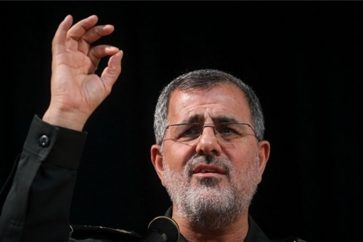Iran’s newly-elected Parliament convened for the first time on Wednesday with the head of the Leader of the Islamic Revolution’s office addressing it with a message from the Leader.
In the message at the opening ceremony of the eleventh Parliament, Ayatollah Sayyed Ali Khamenei called on the newly-elected MPs to push for the settlement of the country’s economic problems on the basis of the resistance economy policies. The Leader also urged the lawmakers to formulate plans to improve the livelihood of the vulnerable groups and fulfill the economic justice goals.
Ayatollah Khamenei thanked the Iranian nation for their “diligence and motivation” in electing the new legislature and congratulated the parliamentarians on securing the nation’s approval.
The legislative body, Ayatollah Khamenei said, is duty-bound to pave the way for the adoption of the laws that serve as the country’s path towards its desired “pinnacles and destinations.”
The Leader, therefore, urged the lawmakers to bring into force “the right, apt, and workable” legislation that would empower “the country to attain its sublime goals.”
“The general policies of the Resistance Economy serve as a credible guideline in this area,” the statement added, referring to a well-known economic course of action devised by the Leader.
After the leader’s message, President Hassan Rouhani addressed the new Parliament.
Rouhani voiced confidence that the government and the parliament would, in cooperation with one another, hearten the nation and frustrate the country’s enemies.
Such cooperation would enable the executive and legislative branches of the government to confront America’s “sanctions and provocations” as well as the new coronavirus outbreak, he said.
The inaugural session of Iran’s 11th Parliament after victory of the Islamic Revolution was attended by Judiciary Chief Seyyed Ebrahim Raeisi and top military commanders.
The new Parliament is dominated by principlists while the previous legislature was chiefly composed of reformists and moderates. There are 290 seats in the Iranian Parliament. The lawmakers are elected for a 4-year term, with no limitation for the incumbent or former Parliamentarians to run again.
The next step for the Parliament is to hold a session to endorse the credentials of the new MPs and elect an official presiding board. Unlike previous Parliaments, the new lawmakers will not visit the mausoleum of the late founder of the Islamic Republic Imam Khomeini due to the outbreak of the coronavirus and the need to observe health regulations.
Source: Iranian media




